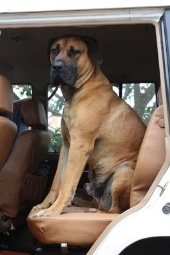posted 15 years ago
Hi everyone,
I'm new to these forums, and have already found them wildly useful. I am the associate director of a sustainable farm ministry in Indiana, and currently I'm working on a proposal to bring chickens onto our farm. We have 300+ acres of certified organic row crops/hay/alfalfa, a 2.5 acre organic market garden, orchards, and a herd of 60 alpacas. It should be easy enough to get chickens involved here, but I am running into problems.
The director, Sisters, everyone else, are all quite in favor of chickens, so that's not the problem. It's logistics. My original proposal was to do the paddocking method, since we already have four separate pastures for the alpacas, each of those broken into numerous paddocks. It seems like a natural choice, it would improve the pasture, help control parasites, etc. The problem all comes down to predator control. I first suggested that we get a LGD (as Paul Wheaton suggests); however, apparently everyone who works here (other than me) is such a huge dog lover that they would never be able to treat it appropriately for herd care. I don't know much about this, but according to them, the dog must be carefully trained, and never really treated like a pet, but only as a working dog. They claim (and I can't really gainsay them here) that they just couldn't cope with this.
The next obvious option would be to keep the chickens in a closed coop each night. But since we're a ministry, rather than a more normal working farm, we keep fairly normal working hours and no one actually lives here. No one will want to come all the way back out to work every night just to put the chickens up! (Although we might be able to get some of the Sisters who live on campus here to do it, but .... I'm dubious).
The next option after this would be a more traditional chicken tractor, but.... I don't know. I just don't feel good about that, and frankly it would be a LOT more work moving that thing around all the time than just switching paddocks every week. I think the livestock folks would balk at the sudden increase in work, and I don't have the time to take it on, either.
The last option would be a more traditional set coop, maybe even in the apple orchard, with a roof. I'm not opposed to this, but it seems like such a shame to lose out on all of the benefits that the chickens could bring to the alpaca pastures, and how much more expensive the chicken food would be, etc.
So.... there's my dilemma. Does anyone have any suggestions for how to proceed? I would love to pursue paddocking, or at least *some* kind of variant on that theme that would integrate the chickens into the alpaca pasture. Thoughts? I've heard about attack llamas....
Best,
Robyn
It's not waste until it's wasted.










































 1
1




 ?? So far, no blood.....or..... she totally ate the evidence.
?? So far, no blood.....or..... she totally ate the evidence. 











 )
) 






